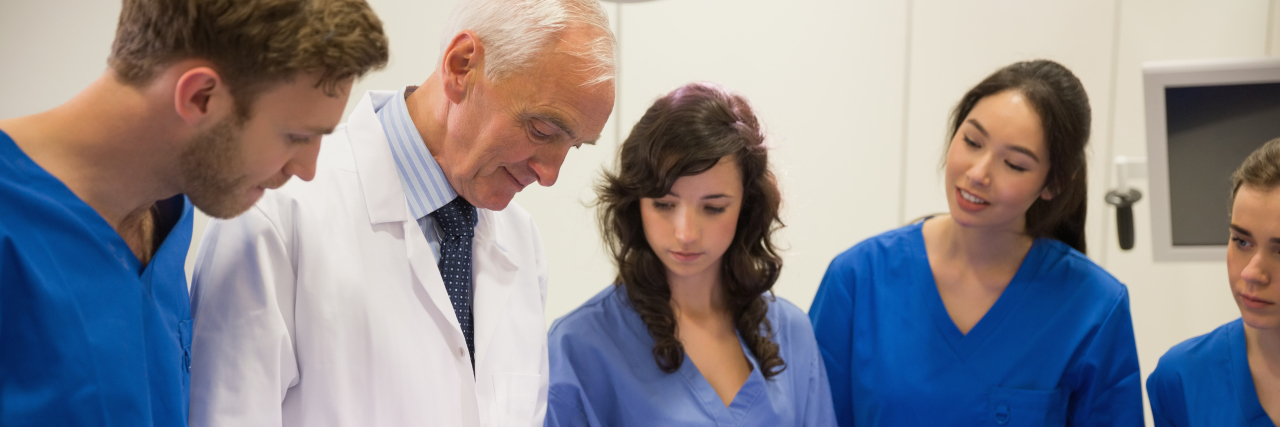Doctors go through a lot of education and training before they see their first patient. One of the main things that seems to be missing in all of the preparation is disability sensitivity training. Disability sensitivity training is sometimes offered to people who are going to work within the disabled population but have had no previous experience interacting with them. Since people with disabilities will be among the patients all doctors will see at some point in their career, the question then becomes: why isn’t disability sensitivity training a requirement in medical school?
Unless a doctor is specializing in some area of disability, they tend to have very little knowledge about disabilities in general. This becomes problematic because if they don’t understand your disability, it’s very easy for them to chalk up illnesses or symptoms to your disability when that may not be the case. Sadly, medical professionals sometimes ignore certain aspects of routine medical care because they are under the misconception that because someone has a disability, those conditions will not affect them. When doctors make the decision to dismiss routine care or testing, the patient is more likely to encounter increased health issues and incur more expenses than would’ve been necessary.
Doctors may not realize the patient is the expert on their disability. Every disability affects people in different ways. While textbooks can talk about the way disabilities affect individuals, there can also be variations not mentioned in textbooks. Then there’s the way people experience their disability. I challenge doctors to be more open to what their patients are trying to tell them when they are thinking about treatment options or prescribing medication. Hopefully, patients who have regular doctors will become comfortable enough to discuss their disabilities openly. However, this is not always the case.
Adding to the stress for some people with disabilities, it’s often quite a different story when you go somewhere like your local emergency room. When you’re already having health issues that need to be addressed, who wants to face the potential stress of the inaccurate assumptions medical professionals make about you during your treatment? Each of these components can potentially complicate the path to getting the healthcare we need.
Having a doctor with a disability may help, but doesn’t automatically solve the problem. It may give us a sense of being more understood as one disabled person to another. I was once the patient of a doctor who has the same disability I do, which totally happened by chance. He was a great doctor, but I don’t know how knowledgeable he was on other disabilities. Just because someone has a disability, that doesn’t automatically make them an expert on all disabilities. Regardless of whether a medical student has disabilities, they should still have to go through the same disability training.
Health care professionals are often used to seeing one category of patient with a disability. This is the one they might read about in their school textbooks or a medical glossary. When they are exposed to some other type, one that does not fit into the mold they expect, suddenly the focus shifts from the reason for the appointment to discussing how you should “look” or what your prognosis should be at this stage in your life based on their pre-set stereotypes.
Just as there are vast areas of medicine, people and the disabilities they live with are also set along a wide continuum. Keeping this in mind, I believe doctors should focus solely on the individual and see how they can best help them on the road back to wellness given their situation. Doctors of today and their staff should be more diversified in their knowledge the and methods they use when interacting with their patients. People should be afforded the individualized care they need, regardless of their limitations.
Getty image by Wavebreak Media.

